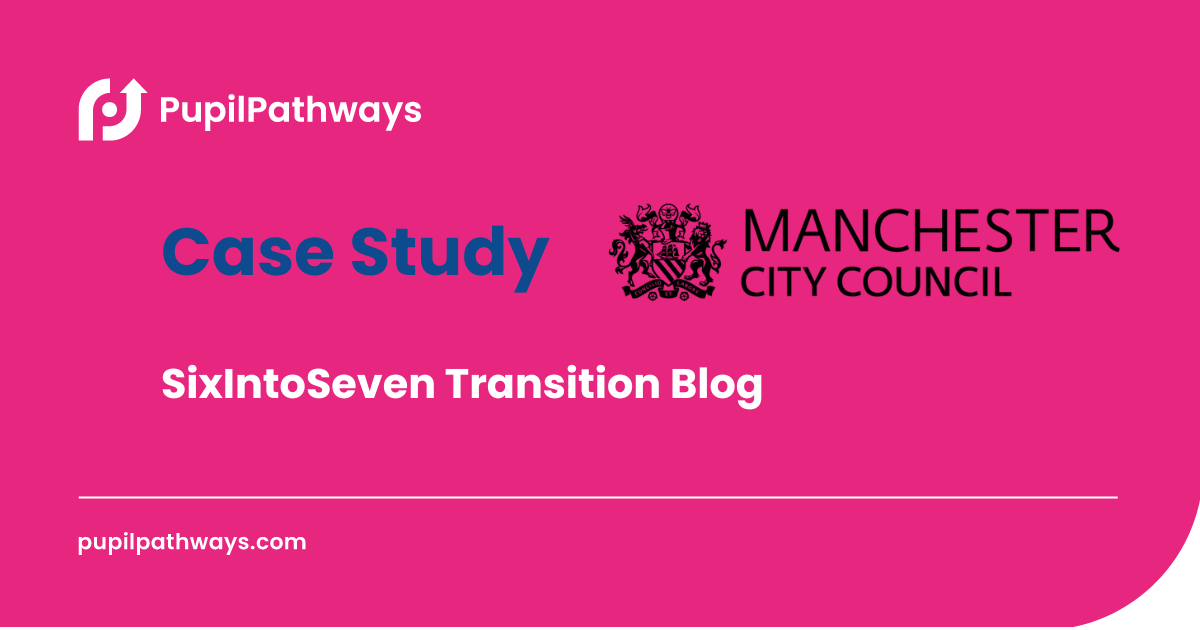SixIntoSeven Transition Blog – Manchester City Council
Keith Bardsley – Manchester City Council
This is one of a series of guest blogs we publish from time to time. We are delighted to welcome Keith Bardsley, Senior Schools Quality Assurance Officer at Manchester City Council.
Manchester City Council
At the risk of stating the obvious, Manchester City Council (MCC) sits within the Greater Manchester Combined Authorities (GMCA) region and is the largest of the ten local authorities in that group. MCC serve over two hundred schools with a secondary sector which is mostly academies, including single academy trusts, local trusts, and larger national trusts.
Each year, almost eight thousand pupils transition from Year 6 into Year 7. This comprises pupils moving from MCC primary to MCC secondary schools but also includes Year 6 pupils moving to secondary schools in different authorities and, of course, Year 7 pupils moving into MCC.
The importance of transition
We know that the Key Stage 2 into Key Stage 3 transition point is one of significant vulnerability for some of our pupils and is the likely point where a child’s education could become derailed. Alternatively, for some pupils, transition could be seen as an opportunity: a time for a fresh start and a new beginning.
Research suggests that there are three things that support effective transition:
- curriculum continuity.
- effective peer networks.
- established strong routines.
Creating an informed transition
In addition to this, a further important factor that supports transition is the transfer of relevant, transparent and secure data. As a sector, we are incredibly data rich, but we are often not particularly data literate. We are awash with data that we do not often use. It is a common theme that primary schools tell us that they pass data into an ‘ether’, and it is lost.
Similarly, secondary schools tell us they do not always receive the appropriate data.
Sometimes GDPR is used as a reason to not pass data between the two sectors.
There is also some misunderstanding of the different ways primary and secondary schools can support their pupils. For example, the number of teaching assistants is often more in a 400-pupil primary than in a one thousand pupil secondary. Conversely, in secondary schools, children are more easily streamed, allowing for specialist teaching.
The same journey through education
In Manchester, we have been trying to make the two sectors more joined up and to view themselves as part of the same journey through education. At a recent head teacher briefing, I used the analogy of a tram journey (trying to model our approach to sustainable travel and keeping it local) and how transition points are effectively children changing trams in their journey towards adulthood. One of the things that can sometimes happen is that children board the wrong tram. That’s not to say that they end up in the wrong school, but that their journey sometimes becomes derailed or diverted. From my history and experience (I was a Transition Coordinator in another Greater Manchester LA a long time ago), I know that on occasion, the data that transfers with the child doesn’t always support strong transition.
SixIntoSeven – supporting the journey through education.
SixIntoSeven supports the early transfer of data between the two sectors, allowing primary and secondary schools to begin the transition processes much earlier in the academic year. In 2024 we undertook a pilot with SixIntoSeven, which allowed our two schools to see data from primary schools much sooner and to act upon the information given.
As a teacher and senior leader in a previous life, I was a believer that anything in school should be meaningful for children and manageable for staff. I recognised that data transfer could be both but often isn’t.
In Manchester, we believe that using Six into Seven could be a game changer for us as and the other authorities that we border. It allows us to be consistent across all our schools – one process for all. We will hopefully see the impact this year on reduced suspensions and exclusions in Year 7 alongside improved attendance – two things that could derail the tram journey.
There are so many other things it could support – SEN(D), LAC, school to school transfers to name but three.



